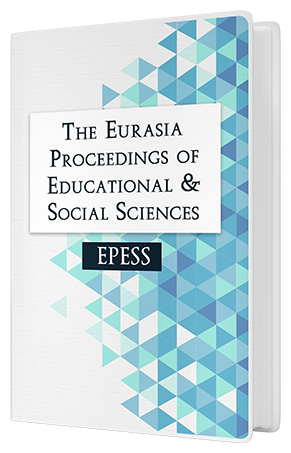Improving Vocabulary through Word Formation at Secondary Level: A Survey
Keywords:
Word formation, Vocabulary, SurveyAbstract
English is being used all over the world as an international language. It has become a Lingua Franca and a language of greater opportunities. It also enjoys a supreme status in society. Its sound knowledge is a successful passport for any job. For learning any language, both the oral and written skills are of equal importance. In fact, learning a second language is never easy. Learners have to wrestle with new vocabulary, rules of grammar, pronunciation and more. In learning a second language, vocabulary is the most paramount part. It is the soul and essence of a language. It is also first and leading stair in a language acquisition. Its knowledge plays an important role in almost all areas of language. So, the whole process of learning a language depends on learning its vocabulary. The current study evaluated the ways to improve vocabulary through word formation at secondary level. It was a survey type of research based on quantitative research approach. Two hundred students and fifty teachers from Bahawalpur region participated in this study. The data was assembled through a close-ended questionnaire. The collected data was analyzed in SPSS. The findings of the study revealed a significant improvement in vocabulary. It is recommended that quizzes, exercises and tests for affixes should be used to enhance the vocabulary among students. The recommendations and findings of this study should be taken into careful consideration and steps should be taken to implement those in our classrooms. If implemented intentionally, it is expected that the state of the teaching and learning of vocabulary skills at secondary level will be improved remarkably.Downloads
Published
Issue
Section
License
Copyright (c) 2020 The Eurasia Proceedings of Educational and Social Sciences

This work is licensed under a Creative Commons Attribution-NonCommercial-ShareAlike 4.0 International License.
The articles may be used for research, teaching, and private study purposes. Any substantial or systematic reproduction, redistribution, reselling, loan, sub-licensing, systematic supply, or distribution in any form to anyone is expressly forbidden. Authors alone are responsible for the contents of their articles. The journal owns the copyright of the articles. The publisher shall not be liable for any loss, actions, claims, proceedings, demand, or costs or damages whatsoever or howsoever caused arising directly or indirectly in connection with or arising out of the use of the research material. All authors are requested to disclose any actual or potential conflict of interest including any financial, personal or other relationships with other people or organizations regarding the submitted work.




